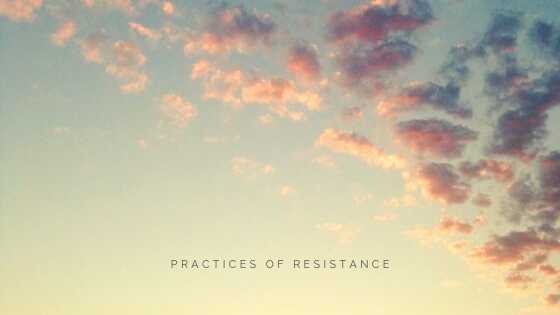
Silence and Solitude: A Practice to Try in the New Year
Truthfully, I used to think of silence and solitude as practices for refreshment, renewal, and getting away from people and set aside responsibilities. But they are not designed to make me feel rested. They’re designed to strip away all the distractions, let me see myself clearly, and allow me to hear the voice of God. Nouwen calls silence and solitude “the furnace of transformation” (The Way of the Heart, p. 13). Deliberately placing myself into a furnace sounds like the very opposite of restful.
But friends, I am in need of practicing silence and solitude myself right now. Desperately. (I think that’s the real reason why I’ve procrastinated writing this post…) I can feel in my soul a deep, deep longing to get away from noise, words, instagram posts, unsettling news stories, the world telling me what I should want and have and do. To instead be so satisfied with the quiet presence of God that words are unnecessary. There’s a quote from Spurgeon that has been playing in my head the last few days, in which he says that “contemplation, still worship, unuttered rapture, these are mine when my best jewels are before me. Brethren, rob not your heart of the deep sea joys; miss not the far-down life.”
Rob not our hearts of the deep sea joys.
Miss not the far-down life.
So, let’s plumb the depths and learn this far-down life together, shall we?

Practices of Resistance: Making Space to Experience God’s Presence
As we continue along in our Rule of Life series and explore spiritual practices that we can integrate into our daily and weekly rhythms, I wanted to introduce a few practices that have been particularly meaningful for both of us in this season. These three practices are specifically geared towards helping us to discern how our use of technology affects our souls:
Turning our phones off for one hour every day.
Reading scripture before looking at our phones when we wake up.
Limiting media intake to a few hours a week.
All three are straight out of Justin Whitmel Earley’s The Common Rule, and he categorizes them as “practices of resistance” because they help us to become aware of how our habits are shaping and forming us, and how we can intentionally resist any habits or messages that are forming us into something other than the image of Christ. He writes,
"Our world is full of a thousand invisible habits of fear, anger, anxiety, and envy that we unconsciously and consciously adopt. Should we do nothing, we will be taught to love the very things that tear us apart. So we must take up the fight, open our eyes to the way media form us in fear and hate, the way screens form us in absence, and see the way excess and laziness train us to love ourselves above all else. But remember that resistance has a purpose: love. The habits of resistance aren’t supposed to shield you from the world but to turn you toward it. They aren’t so you can feel good about you’ve done for you. They exist so you can feel peace about what God has done for you” (The Common Rule, 25).
